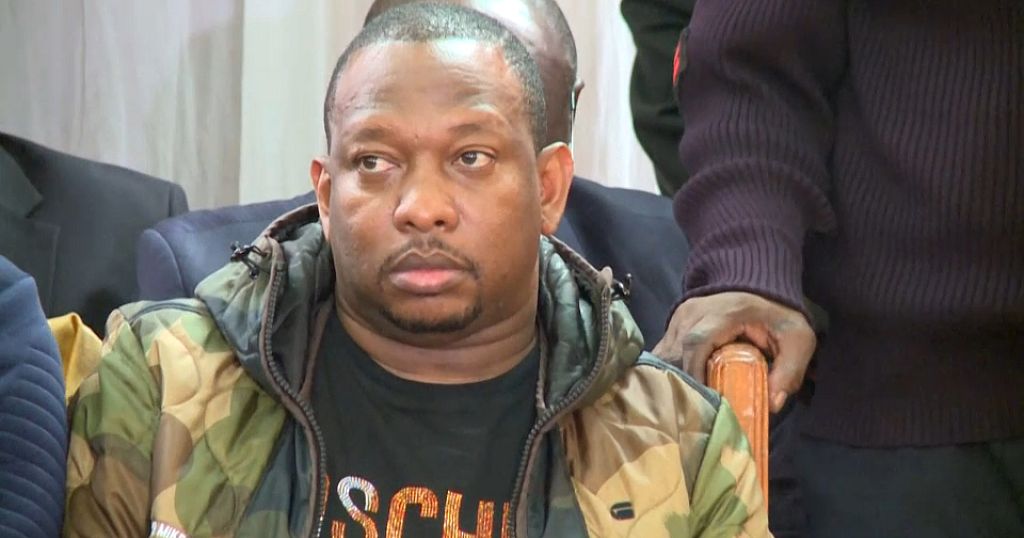As the investigations into the Arror and Kimwarer dam scandals enter the decisive stages, the Directorate of Criminal Investigations has found itself facing mounting criticism by a section of the political elite, who accuse it of conducting the probe through leakage of confidential documents and information to the Press.
It does not bother me whether or not the information and documents recently published in the media on the scandals were based on leakages by insiders or public-spirited whistle-blowers from within the civil service.
And I believe that leakage of confidential documents and information on corruption to the media is a very good thing.
Without them, free expression would not have the breathing space it needs to thrive and media censorship would become the norm.
It would be utterly hypocritical on my part if I joined the bandwagon of DCI critics, because I am a journalist who — in my many years in the newsroom — thrived on leaked Cabinet minutes, confidential aide memoires and secret memos between ministers and principal secretaries.
My most enjoyable days were when a top government official or whistle-blower called me to a quiet corner in the city to hand to me government documents marked “top secret” or “private and confidential”.
I would get a big kick when a disappointed contractor approached me to present to me a heap of confidential tender evaluation committee minutes, complete with a storyline and details about how rigging or collusive bidding had taken place.
I would almost salivate when the documents and information revealed a pattern of cover-ups and deception, and when public interest issues surrounding the subject matter were as grave as to elicit public outrage or even provoke the sacking of corrupt public officials.
In the world of your typical scribe, what guides you when deciding whether or not to publish information or confidential documents leaked to you by a whistle-blower is “duty of interest” — the duty to publish information that the public has an interest in.
I will publish documents marked “secret” if the public interest in publishing the confidential information far outweighs the duty to safeguard the reputation of some of these arrogant and noisy political figures shouting at the DCI.
If it is, indeed, the case — as the politicians have claimed — that some insiders within DCI have been leaking stuff to the Press, then I encourage the DCI to not only leak and disclose more information on Arror and Kimwarer to the media but to also adopt that as part of a deliberate strategy in fighting graft.
Disclosure, exposure and naming and shaming must be made an integral part of a robust anti-corruption communication strategy.
The DCI should now move a step further and publish on its own website some of the secret contracts and shady loan agreements that government officials have committed us to.
On the Arorr and Kimwarer scandals, the DCI needs to publish full details of the loan agreements, including details on all creditors involved in funding the project and the terms of the loans.
I say so because the press statement issued by National Treasury Cabinet Secretary Henry Rotich two weeks ago raised more questions than answers when it comes to the full details of the loans.
We are made to believe that we contracted two sets of creditors. First, a syndicate of four international banks, led by the Italian bank Intensa Sanpaolo SPA and including BNP Paribas Fortis, Unicredit SPS and Unicredit Bank AG.
According to the statement by Mr Rotich, this first set of creditors only catered for a very small proportion — a mere 12 per cent — with the bulk of the funding coming from the second category of creditors.
Who is in the second category? We are told that it is the government of Italy, through its credit agency SACE. The minister disclosed that this category gave us 87 per cent of the funding.
We need full disclosure on these loans, considering that the creditors whose names are yet to be disclosed are big players, accounting for nearly the entire financing of the two dams.
We must force SACE and the Italian EPC contractor — CMC Di Ravenna — to table all the contracts and agreements signed with the category of creditors who are ostensibly providing 87 per cent of the funding.
We need to scrutinise all these agreements, examine the credentials of these shady lenders and ensure that we don’t end up with another Anglo Leasing scandal, whereby the country is made to service expensive external debts when projects did not take off.
Let the DCI dig all the dirt and make it public.

 General News3 days ago
General News3 days ago
 General News3 days ago
General News3 days ago
 General News3 days ago
General News3 days ago
 General News2 days ago
General News2 days ago
 General News20 hours ago
General News20 hours ago

